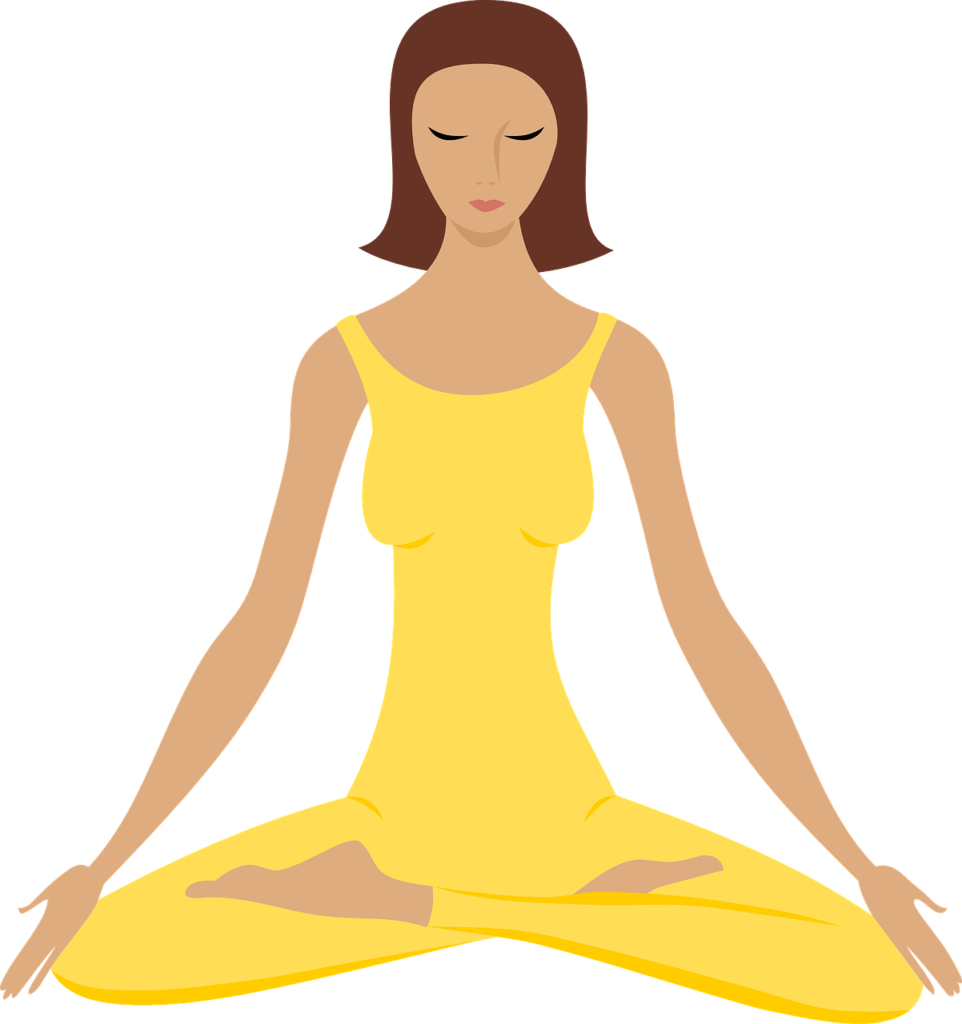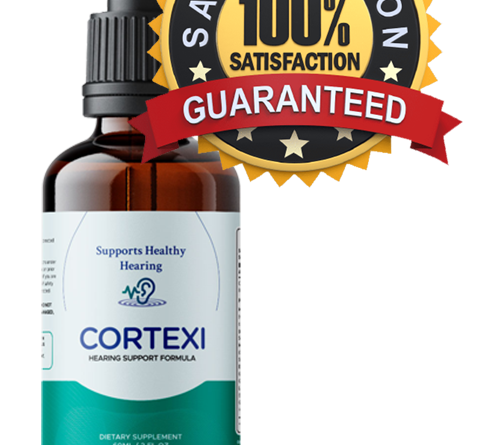
Disclaimer: This post may contain affiliate links. As an Amazon Associate, we earn from qualifying purchases.
If you’ve ever wondered about the key principles that contribute to a healthy lifestyle, look no further. The 4 Principles of Health is an informative and concise guide that explores the fundamental aspects of maintaining optimal well-being. From nutrition and exercise to mental and emotional wellness, this product aims to provide you with valuable insights and practical tips on how to achieve a balanced and healthy life. So, if you’re ready to take charge of your health and unlock a world of well-being, let’s explore the 4 Principles of Health together.

This image is property of pixabay.com.
Principle 1: Proper Nutrition
Importance of a Balanced Diet
Proper nutrition is the foundation of good health. A balanced diet is crucial for providing the body with the essential nutrients it needs to function properly. Without a balanced diet, you may experience deficiencies in vitamins, minerals, and other important nutrients, which can lead to a variety of health issues.
A balanced diet consists of a combination of different food groups, including fruits and vegetables, whole grains, lean proteins, and healthy fats. Each food group provides its own unique set of nutrients, so it’s important to include a variety of foods from each group in your daily diet.
Essential Nutrients
The human body requires a wide range of essential nutrients for optimal health. These include carbohydrates, proteins, fats, vitamins, minerals, and water. Carbohydrates are the body’s primary source of energy, while proteins are essential for building and repairing tissues. Fats are important for hormone production and nutrient absorption.
Vitamins and minerals are necessary for a variety of functions in the body, including strong bones, a healthy immune system, and proper brain function. Water is essential for staying hydrated and to support the body’s overall function.
Recommended Daily Intake
The recommended daily intake of nutrients varies based on age, sex, activity level, and individual needs. It’s important to consult with a healthcare professional or registered dietitian to determine the specific nutrient needs for your body.
The general guidelines, however, suggest consuming a variety of fruits and vegetables every day, aiming for at least five servings. Whole grains should be the primary source of carbohydrates, and lean proteins such as poultry, fish, beans, and nuts are recommended. Healthy fats can be obtained from sources like avocados, olive oil, and nuts.
Healthy Eating Tips
To maintain a healthy diet, it’s important to make informed choices about the foods you consume. Here are some healthy eating tips to keep in mind:
- Include a variety of fruits and vegetables in your meals.
- Choose whole grains instead of refined grains.
- Limit the intake of processed and sugary foods.
- Opt for lean proteins and limit saturated and trans fats.
- Stay hydrated by drinking plenty of water throughout the day.
- Be mindful of portion sizes and practice portion control.
- Limit the consumption of sugary beverages and opt for water or unsweetened drinks instead.
By following these healthy eating tips and consuming a balanced diet, you can provide your body with the necessary nutrients it needs to thrive.
Principle 2: Regular Physical Activity
Benefits of Exercise
Regular physical activity is another essential principle of maintaining good health. Exercise offers numerous benefits for both physical and mental well-being. Engaging in regular exercise can help improve cardiovascular health, build muscle strength, and enhance flexibility and balance. It also plays a crucial role in managing weight and reducing the risk of chronic diseases such as heart disease, diabetes, and certain types of cancer.
Types of Physical Activity
There are several types of physical activities to choose from, and it’s important to find activities that you enjoy and that align with your fitness level and personal preferences. Some common types of physical activity include:
- Aerobic exercises: These activities increase your heart rate and improve cardiovascular health. Examples include brisk walking, running, swimming, cycling, and dancing.
- Strength training: This type of exercise focuses on building muscle strength and includes activities like weightlifting, resistance training, and bodyweight exercises.
- Flexibility exercises: These exercises promote flexibility and range of motion. Examples include yoga, Pilates, and stretching routines.
- Balance exercises: These exercises improve balance and stability, which is important for preventing falls and injuries. Tai Chi and yoga can help improve balance.
Recommended Exercise Guidelines
The recommended amount of exercise varies depending on age, fitness level, and health goals. As a general guideline, adults should aim for at least 150 minutes of moderate-intensity aerobic activity per week, or 75 minutes of vigorous-intensity aerobic activity. It’s also beneficial to incorporate strength training exercises at least twice a week, focusing on all major muscle groups.
Children and adolescents should aim for at least 60 minutes of physical activity each day, which should include a combination of aerobic, muscle-strengthening, and bone-strengthening activities.
How to Incorporate Exercise into Daily Life
Incorporating exercise into your daily routine can seem challenging, but with a little planning and creativity, it’s possible to make it a regular part of your life. Here are some tips to help you incorporate exercise into your daily routine:
- Schedule exercise sessions in advance so that they become a priority.
- Choose activities that you enjoy, as you’re more likely to stick with them in the long run.
- Find opportunities for physical activity throughout the day, such as taking the stairs instead of the elevator or going for a walk during your lunch break.
- Get active with friends or family members to make it more enjoyable.
- Consider joining a gym or fitness class for added motivation and accountability.
- Be consistent and gradually increase the intensity and duration of your workouts over time.
By making exercise a regular part of your daily life, you can reap the countless benefits it offers and improve your overall health and well-being.
Principle 3: Adequate Rest and Sleep
The Importance of Rest
While regular physical activity is important, it’s equally crucial to give your body the rest and sleep it needs to recover and recharge. Rest is essential for allowing your muscles to repair and rebuild after exercise, and it plays a significant role in overall health and well-being.
Rest also includes taking breaks throughout the day, allowing your mind and body to relax and rejuvenate. It’s important to listen to your body’s signals and take breaks when needed to avoid burnout and reduce the risk of injuries.
Effects of Sleep Deprivation
Sleep deprivation can have a profound impact on your physical and mental health. Lack of sleep can lead to a range of negative effects, including decreased cognitive function, impaired immune system function, increased risk of chronic diseases, and mood disturbances.
Inadequate sleep can also interfere with hormone regulation, leading to imbalances that can affect appetite and weight management. Additionally, poor sleep quality is associated with an increased risk of accidents and injuries.
Recommended Sleep Duration
The recommended amount of sleep varies depending on age. The National Sleep Foundation recommends the following sleep durations:
- Newborns (0-3 months): 14-17 hours per day
- Infants (4-11 months): 12-15 hours per day
- Toddlers (1-2 years): 11-14 hours per day
- Preschoolers (3-5 years): 10-13 hours per day
- School-age children (6-13 years): 9-11 hours per day
- Teenagers (14-17 years): 8-10 hours per day
- Adults (18-64 years): 7-9 hours per day
- Older adults (65+ years): 7-8 hours per day
It’s important to prioritize sleep and ensure that you’re getting enough sleep each night to support your overall health and well-being.
Tips for Better Sleep
If you struggle with getting enough sleep or improving the quality of your sleep, here are some tips that may help:
- Establish a regular sleep schedule and maintain a consistent sleep routine.
- Create a sleep-friendly environment, including a cool, dark, and quiet bedroom.
- Limit exposure to screens and electronic devices before bed.
- Avoid consuming caffeine or large meals close to bedtime.
- Practice relaxation techniques, such as deep breathing or meditation, before sleep.
- Engage in regular physical activity, but avoid intense exercise close to bedtime.
- If you’re still having trouble sleeping, consult with a healthcare professional to rule out any underlying sleep disorders.
By prioritizing rest and ensuring quality sleep, you can optimize your body’s recovery processes and support your overall health and well-being.
Principle 4: Stress Management
Understanding Stress
Stress is a natural response to challenging or demanding situations, and it’s something that everyone experiences to some degree. While short-term stress can be beneficial by motivating you to take action, chronic or excessive stress can have detrimental effects on your health and well-being.
Understanding stress and its impact on the body is the first step in effective stress management. Stress can manifest physically, mentally, and emotionally, and it can disrupt various bodily systems, including the immune system, cardiovascular system, and digestive system.
Consequences of Chronic Stress
Chronic stress can have a serious impact on your health, both in the short-term and long-term. Some of the consequences of chronic stress include:
- Increased risk of cardiovascular disease
- Weakened immune system
- Digestive disorders
- Sleep disturbances
- Mental health issues such as anxiety and depression
- Impaired cognitive function and memory
It’s important to address and manage stress effectively to minimize its negative effects on your overall health and well-being.
Stress Relief Techniques
There are several effective stress relief techniques that you can incorporate into your daily life to manage and reduce stress. Here are a few techniques to consider:
- Deep breathing exercises: Deep breathing can help activate the body’s relaxation response and reduce stress levels. Practice deep breathing by inhaling deeply through your nose, holding for a few seconds, and exhaling slowly through your mouth.
- Physical activity: Regular exercise is an excellent way to manage stress and reduce its effects on the body. Engage in activities that you enjoy, such as walking, jogging, or participating in a fitness class.
- Mindfulness and meditation: Mindfulness involves being fully present in the moment and accepting your thoughts and feelings without judgment. Meditation can help calm the mind and reduce stress. Consider trying guided meditation or mindfulness exercises to help manage stress.
- Relaxation techniques: Experiment with different relaxation techniques such as progressive muscle relaxation, visualization, or listening to calming music.
- Healthy coping mechanisms: Find healthy ways to cope with stress, such as engaging in hobbies or activities you enjoy, spending time with loved ones, or practicing self-care activities like taking a bath or reading a book.
Developing a Stress Management Plan
To effectively manage stress, it’s important to develop a personalized stress management plan. This plan should include a variety of stress relief techniques that work best for you. Experiment with different strategies, and pay attention to what helps you feel more relaxed and reduces your stress levels. Be consistent and make stress management a priority in your daily life.
By managing stress effectively, you can minimize its negative impact on your health and well-being and lead a more balanced and fulfilling life.

This image is property of pixabay.com.
Principle 5: Hydration
Benefits of Hydration
Hydration is a crucial aspect of maintaining good health, as water is essential for numerous bodily functions. Staying properly hydrated offers several benefits for your overall well-being. These benefits include:
- Regulation of body temperature
- Lubrication of joints
- Transportation of nutrients and oxygen to cells
- Removal of waste products from the body through urine and sweat
- Support for digestive function and nutrient absorption
Daily Water Intake Recommendations
The amount of water you need to consume each day varies based on factors such as age, sex, activity level, and climate. As a general guideline, adults should aim to drink at least 8 cups (64 ounces) of water daily. However, individual water needs may vary, so it’s important to listen to your body’s cues and hydrate accordingly.
It’s worth noting that certain factors, such as physical activity, illness, or pregnancy, may increase your water needs. It’s crucial to stay adequately hydrated throughout the day to support your body’s functions.
Signs of Dehydration
Dehydration occurs when your body loses more fluids than it consumes. It’s important to be aware of the signs of dehydration to address it promptly. Some common signs of dehydration include:
- Thirst
- Dry or sticky mouth
- Dark-colored urine
- Fatigue or dizziness
- Headache
- Dry skin
- Decreased urine output
If you experience any of these symptoms, it may be a sign that you need to increase your fluid intake and rehydrate.
Tips for Staying Hydrated
Staying properly hydrated doesn’t have to be complicated. Here are some tips to help you stay hydrated throughout the day:
- Keep a water bottle with you at all times and sip on it regularly.
- Drink water before, during, and after physical activity.
- Include hydrating foods in your diet, such as fruits and vegetables with high water content.
- Limit the consumption of sugary drinks and opt for water as the primary hydrating beverage.
- Set reminders or use smartphone apps to help you track your water intake.
- Listen to your body’s thirst signals and drink water whenever you feel thirsty.
By staying adequately hydrated, you can support your body’s overall function and maintain good health.
Principle 6: Regular Health Check-ups
The Importance of Health Check-ups
Regular health check-ups play a crucial role in maintaining good health. These check-ups allow healthcare professionals to assess your overall health, identify potential health concerns, and provide necessary preventive care. Routine screenings and check-ups can help detect issues in their early stages when they are often more easily treatable.
Health check-ups also provide an opportunity to discuss any concerns or questions with your healthcare provider and receive guidance on optimizing your health and well-being.
Recommended Screening Tests
The specific screening tests recommended may vary depending on factors such as age, sex, and family history. However, some common screening tests that may be included in a health check-up are:
- Blood pressure measurement: High blood pressure is a risk factor for heart disease and other serious health conditions.
- Cholesterol screening: High cholesterol levels can increase the risk of heart disease and stroke.
- Blood glucose testing: Diabetes is a prevalent condition that can have serious health consequences if left untreated.
- Cancer screenings: These may include mammograms for breast cancer, Pap smears for cervical cancer, colonoscopies for colorectal cancer, or prostate-specific antigen (PSA) tests for prostate cancer.
- Bone density testing: This test is commonly recommended for postmenopausal women to assess the risk of osteoporosis.
- Immunizations: Routine immunizations are an essential part of preventive care and help protect against various infectious diseases.
It’s important to consult with your healthcare provider to determine which screening tests are appropriate for you based on your individual health profile.
Frequency of Check-ups
The frequency of health check-ups may vary depending on factors such as age, overall health, and any underlying medical conditions. As a general guideline, adults should have an annual check-up with their primary care provider. However, some individuals with specific health concerns may require more frequent visits.
Children and adolescents typically have more frequent well-child visits, including vaccinations and developmental assessments.
It’s important to establish a relationship with a primary care provider and follow their recommendations regarding the timing and frequency of your check-ups.
Maintaining Medical Records
Keeping track of your medical records can be beneficial for both you and your healthcare providers. Maintaining organized medical records ensures that you have accurate information about your medical history, including past diagnoses, medications, and immunizations. It can also help your healthcare providers make informed decisions about your care and prevent errors or miscommunications.
Consider keeping a folder or digital file with copies of important medical documents, such as test results, hospital discharge summaries, and medication lists. Be sure to update your records as needed, and inform your healthcare providers of any changes to your medical history or medications.
By regularly scheduling and attending health check-ups, you can proactively manage your health and detect any potential issues early on, allowing for more effective treatment and prevention.
Principle 7: Personal Hygiene
Importance of Personal Hygiene
Personal hygiene refers to the practices and habits that promote cleanliness and prevent the spread of germs and infectious diseases. Good personal hygiene is essential for maintaining overall health and well-being and preventing the spread of illness to others.
Practicing proper personal hygiene helps remove dirt, bacteria, and viruses from the body and reduces the risk of infections and diseases. It also promotes a positive body image and enhances self-confidence.
Effective Handwashing Techniques
Handwashing is one of the most important and effective personal hygiene practices. Proper handwashing helps remove germs from your hands and prevents the spread of diseases. Here’s an effective handwashing technique to follow:
- Wet your hands with clean, running water.
- Apply soap and lather well.
- Rub your hands together vigorously for at least 20 seconds, paying attention to all surfaces, including between fingers and under nails.
- Rinse your hands thoroughly under running water.
- Dry your hands with a clean towel or air dry them.
It’s important to wash your hands regularly, especially before preparing or consuming food, after using the restroom, after touching shared surfaces, and after coughing, sneezing, or blowing your nose.
Proper Dental Care
Taking care of your oral health is an important aspect of personal hygiene. Good dental hygiene helps prevent tooth decay, gum disease, and bad breath. Here are some important practices for proper dental care:
- Brush your teeth at least twice a day using a fluoride toothpaste.
- Use a soft-bristled toothbrush and replace it every three to four months or sooner if the bristles become frayed.
- Floss daily to remove plaque and food particles from between your teeth.
- Limit sugary foods and drinks, as they can contribute to tooth decay.
- Visit your dentist regularly for check-ups and professional cleanings.
Proper dental care not only helps maintain a healthy mouth but also contributes to overall health and well-being.
Good Bathing Practices
Regular bathing is an important personal hygiene practice that helps remove sweat, dirt, and bacteria from the body, keeping your skin clean and fresh. Here are some good bathing practices to follow:
- Use warm water and a mild soap or body wash.
- Pay attention to areas prone to sweating, such as underarms, groin, and feet.
- Thoroughly rinse off the soap or body wash from your body.
- Pat your skin dry with a clean towel after bathing.
- Apply moisturizer to keep your skin hydrated.
It’s important to establish a bathing routine that works best for you, taking into account factors such as personal preference, skin type, and activity level.
By practicing good personal hygiene habits, such as regular handwashing, proper dental care, and regular bathing, you can promote cleanliness, reduce the risk of infections, and maintain overall health and well-being.
Principle 8: Avoidance of Harmful Substances
Understanding Harmful Substances
Avoiding harmful substances is an essential principle of maintaining good health. Harmful substances refer to substances that can have detrimental effects on the body when used or consumed excessively or inappropriately. Some common harmful substances include tobacco, alcohol, illicit drugs, and certain medications.
Understanding the risks and potential consequences of using these substances is crucial for promoting and maintaining good health.
Effects of Substance Abuse
Substance abuse can have serious negative effects on your physical, mental, and social well-being. The effects can vary depending on the substance used, the frequency and duration of use, and individual factors.
Some of the potential consequences of substance abuse include:
- Increased risk of addiction and dependence
- Organ damage and impaired bodily functions
- Increased risk of mental health disorders, such as anxiety and depression
- Relationship problems and social isolation
- Impaired judgment and decision-making
- Increased risk of accidents and injuries
- Legal and financial problems
It’s important to be aware of the potential risks and consequences of substance abuse and take steps to avoid or address these behaviors.
Tobacco and Alcohol Consumption
Tobacco use and excessive alcohol consumption are two common harmful substances that have significant negative health effects.
Tobacco use, particularly smoking, is a leading cause of preventable diseases worldwide. It is associated with an increased risk of various diseases, including lung cancer, heart disease, stroke, and respiratory conditions. Quitting smoking is one of the most important steps you can take to improve your health and reduce your risk of these conditions.
Excessive alcohol consumption can also have serious health consequences. It can increase the risk of liver disease, heart problems, cancer, and mental health disorders. It can also lead to addiction and dependence. It’s important to drink alcohol in moderation and be aware of the recommended limits.
Tips for Quitting Harmful Habits
Quitting harmful habits such as smoking or excessive alcohol consumption can be challenging, but it is possible with the right support and strategies. Here are some tips that may help:
- Set a quit date and make a commitment to yourself.
- Seek support from friends, family, or support groups.
- Consider nicotine replacement therapy or other medications to assist with smoking cessation.
- Find healthy alternatives or distractions to cope with cravings, such as exercise or engaging in hobbies.
- Address underlying emotional or psychological issues that may contribute to substance use.
- If necessary, seek professional help from healthcare providers or addiction specialists.
Quitting harmful substances can greatly improve your health and quality of life. It’s never too late to make positive changes and prioritize your well-being.
Principle 9: Mental and Emotional Well-being
The Impact of Mental Health
Mental health plays a crucial role in overall well-being. It encompasses emotional, psychological, and social well-being and affects how we think, feel, and act. Mental health impacts all areas of life, including relationships, work, and physical health.
Maintaining good mental and emotional well-being is essential for a fulfilling and balanced life. It involves finding healthy ways to cope with stress, manage emotions, and maintain a positive outlook.
Techniques for Stress Reduction
Chronic stress can have a significant negative impact on mental and emotional well-being. Therefore, learning effective stress reduction techniques is essential. Here are some techniques that can help reduce stress:
- Engage in regular physical activity, such as walking, yoga, or meditation.
- Practice mindfulness and relaxation techniques, including deep breathing and guided imagery.
- Find healthy outlets to express emotions, such as journaling or talking with a trusted friend or therapist.
- Prioritize self-care activities, such as getting enough sleep, eating a balanced diet, and engaging in hobbies or activities you enjoy.
- Learn time management and prioritize tasks to reduce feelings of overwhelm.
- Set realistic goals and maintain a positive mindset.
- Seek support from others when needed, whether it’s from friends, family, or professional resources.
By incorporating stress reduction techniques into your daily life, you can improve your mental and emotional well-being and develop effective coping strategies.
Supportive Relationships
Building and maintaining supportive relationships is essential for mental and emotional well-being. Positive relationships provide a sense of belonging, support, and connection, and they can contribute to improved self-esteem and overall happiness.
It’s important to nurture relationships with friends, family, romantic partners, and community members. Engage in activities that foster connection and meaningful interaction, such as spending quality time together, engaging in shared hobbies, or participating in community events.
In addition to nurturing existing relationships, it’s important to seek out new connections and build a support network. This can involve joining clubs or organizations, attending support groups, or volunteering in your community.
Seeking Professional Help
If you’re experiencing persistent or severe mental health symptoms, it’s important to seek professional help. Mental health professionals, such as therapists, counselors, or psychiatrists, can provide support, guidance, and evidence-based treatment options.
It’s important to remember that seeking professional help is a sign of strength and should be viewed as a proactive step towards improving mental and emotional well-being. Mental health professionals are trained to assist individuals in navigating challenges, managing symptoms, and developing coping strategies.
Developing a Self-Care Routine
Developing a self-care routine is essential for maintaining and improving your mental and emotional well-being. Self-care involves intentionally engaging in activities that promote relaxation, reduce stress, and enhance overall well-being. It’s about taking time for yourself and prioritizing activities that nourish your mind, body, and soul.
Here are some ideas for self-care activities:
- Engage in regular physical exercise or engage in movement that you enjoy.
- Practice relaxation techniques, such as deep breathing exercises or guided meditations.
- Spend time in nature or engage in outdoor activities that you love.
- Set aside time for hobbies or activities that bring you joy and fulfillment.
- Prioritize quality sleep and establish a bedtime routine.
- Practice mindfulness or engage in activities that promote self-reflection, such as journaling or gratitude exercises.
- Nourish your body with a balanced diet and stay hydrated.
- Seek moments of solitude and quiet to recharge and reflect.
- Surround yourself with positive influences and engage in positive self-talk.
By incorporating self-care activities into your routine, you can prioritize your mental and emotional well-being, reduce stress, and foster a greater sense of happiness and fulfillment.
Principle 10: Health Education and Awareness
Importance of Health Education
Health education plays a vital role in empowering individuals to make informed decisions about their health and well-being. It provides individuals with the knowledge and skills necessary to lead a healthy lifestyle, make healthy choices, and navigate the healthcare system effectively.
A lack of health education can contribute to misinformation, misconceptions, and poor health outcomes. By promoting health education, individuals can take an active role in their health and well-being and make choices that align with their goals and values.
Accessing Reliable Health Information
With an overwhelming amount of health information available online, it’s crucial to know how to distinguish reliable sources from misinformation. When seeking health information, it’s important to turn to reputable sources such as government health organizations, medical associations, and peer-reviewed research publications.
Some reliable sources of health information include:
- Centers for Disease Control and Prevention (CDC)
- World Health Organization (WHO)
- National Institutes of Health (NIH)
- American Heart Association
- Mayo Clinic
- WebMD (with caution, as it contains both reliable and user-generated content)
Additionally, it may be beneficial to consult with healthcare professionals, such as doctors, nurses, or registered dietitians, who can provide personalized advice based on your specific needs and health profile.
Promoting Health Literacy
Health literacy refers to an individual’s ability to access, understand, and utilize health information to make informed decisions about their health. Promoting health literacy is crucial for empowering individuals to take an active role in their health and well-being.
To promote health literacy, it’s important to:
- Provide clear and accessible health information in plain language.
- Use visual aids and multimedia resources to enhance understanding.
- Promote open and honest communication between healthcare providers and patients.
- Support community-based health education programs.
- Advocate for comprehensive health education in schools and other educational settings.
- Encourage individuals to ask questions and seek clarification when unsure about health information.
By promoting health literacy, individuals can become active participants in their own health and make informed decisions to support their overall well-being.
Empowering Individuals through Education
Health education and awareness empower individuals to take control of their own health and make informed choices that align with their well-being. By understanding the principles of nutrition, physical activity, rest and sleep, stress management, hydration, regular health check-ups, personal hygiene, avoidance of harmful substances, mental and emotional well-being, and health education, individuals can make positive changes to enhance their overall health and quality of life.
By prioritizing each of these principles and making conscious efforts to incorporate them into daily life, individuals can thrive in all aspects of their well-being. As you embark on your health journey, remember that small, consistent lifestyle changes can have a significant impact on your health and well-being over time. By nurturing your body, mind, and spirit, you can achieve optimal health and enjoy a fulfilling life.
As an Amazon Associate, we earn from qualifying purchases.















